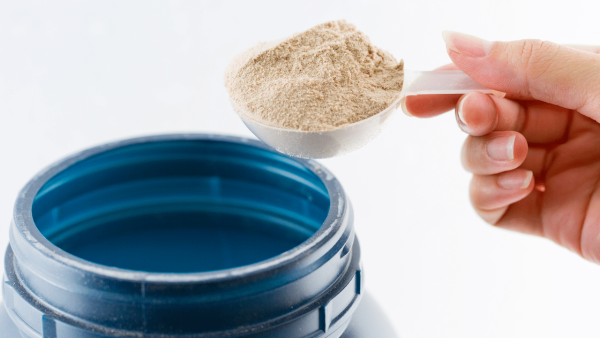
New Delhi: Protein powder is a go-to for many gym lovers, offering a quick and easy way to get the protein you need to fuel your workouts. But if you’re not a fan of relying on artificial sources or find that protein shakes leave you feeling bloated, there are some brilliant natural alternatives. These are especially great for vegetarians who want to hit their daily protein targets without turning to supplements. Protein is key to keeping a healthy weight, boosting metabolism, and building strength and muscle. The amount you need depends on your age, weight, and activity level, but for most adults, that’s anywhere between 50 to 175 grams a day. To stay on track, aim to include 15-30 grams of protein in each meal.
Protein also helps with digestion and keeps you fuller for longer. Here’s a handy tip: start your meals by eating your protein and veggies first, and leave the carbs for later. Research shows this can help stabilise your insulin levels. So, if you’re ready to swap out synthetic protein powders, here are five natural foods that will help you meet your daily protein goals.
Here are five great foods you can use instead of protein powder. If you’re aiming for a more natural way to get your protein without turning to supplements, these choices are perfect. From quinoa and Greek yoghurt to eggs, peanut butter, and cottage cheese, these simple, protein-packed foods will help you hit your daily protein goals with ease.
Quinoa is a whole grain and a complete protein, meaning it contains all the essential amino acids, plus a good dose of fibre. While you don’t need to ditch your rice or pasta completely, quinoa is a great alternative with about 8 grams of protein per cup. It has a mild flavour and a slightly nutty taste, which makes it perfect for adding to salads or as a side dish to shake things up.
Greek yoghurt is thicker and creamier than regular yoghurt, and it packs double the protein with less sugar. Depending on the brand, you can get around 17-20 grams of protein per serving. Enjoy it plain, add some berries, or use it as a healthier alternative to sour cream. Just be sure to check the sugar content before picking a brand.
Powdered peanut butter is a game-changer, giving you 6 grams of protein per two tablespoons, with no fat and fewer calories compared to regular peanut butter. There are lots of brands out there, but PB2 is a popular one, offering a range of flavours like cocoa, crunchy, almond, and cashew. Try making a smoothie with almond milk, a frozen banana, ice, and two tablespoons of chocolate PB2 for a delicious protein boost.
When it comes to breakfast, most options (except oatmeal) are usually low in protein. Eggs, on the other hand, are packed with protein and nutrients, especially if you eat both the white and yolk. Eggs are a complete protein, and if you’re cutting back on fat or calories, egg whites have more protein (3.6 grams) than the yolk (2.7 grams). They’re a great way to start your day strong.
If you don’t eat chicken or eggs, cottage cheese (or paneer) is a fantastic alternative. It’s versatile and can be used in all kinds of dishes, from savoury to sweet. A 100-gram serving provides about 14-15 grams of protein, so it’s an easy and tasty way to hit your daily protein target.